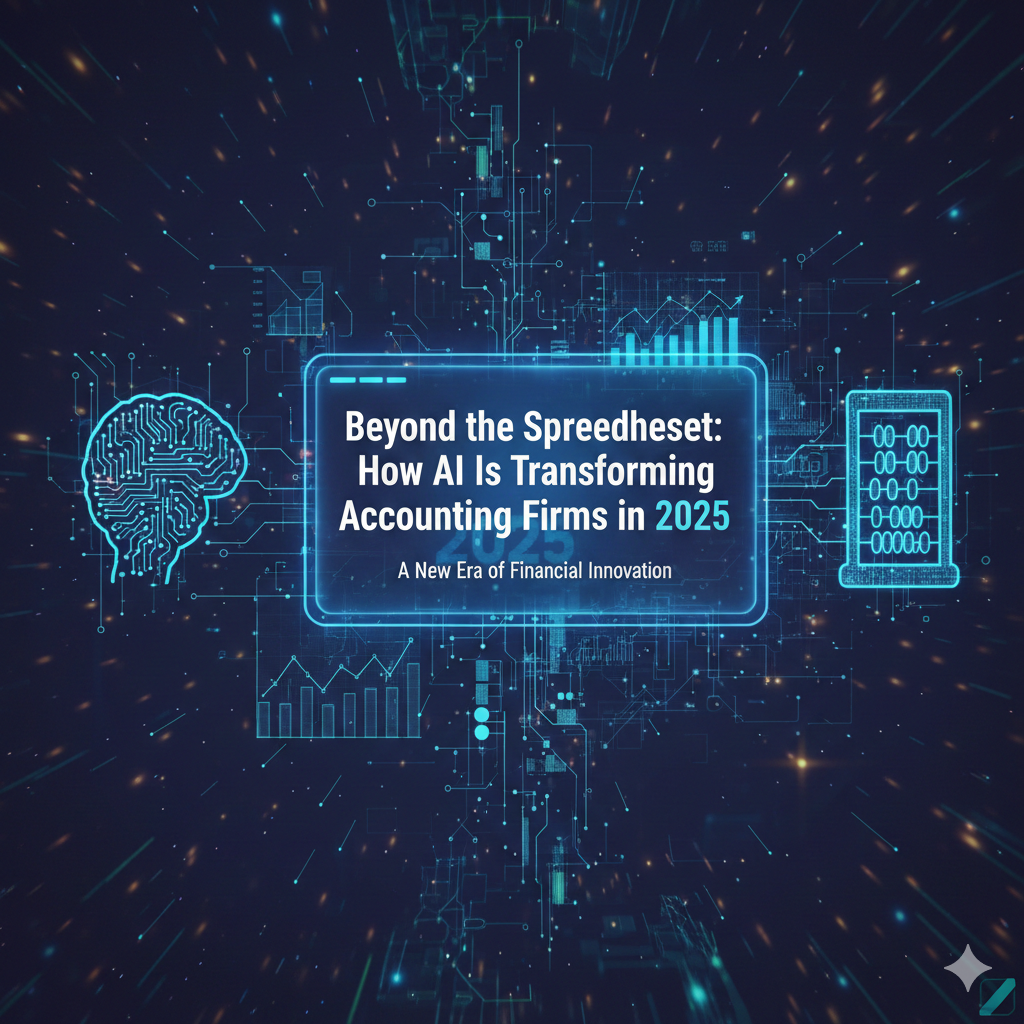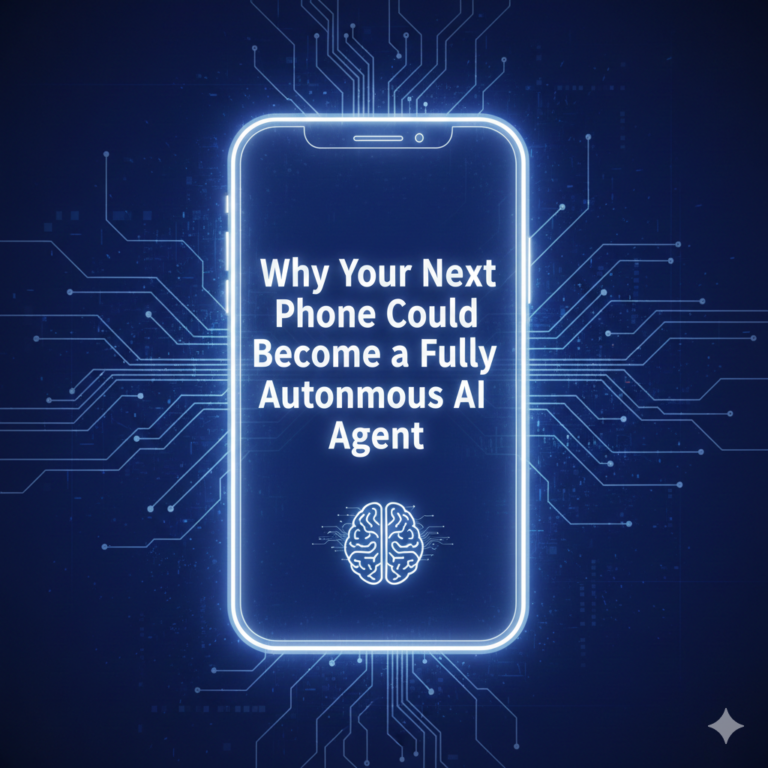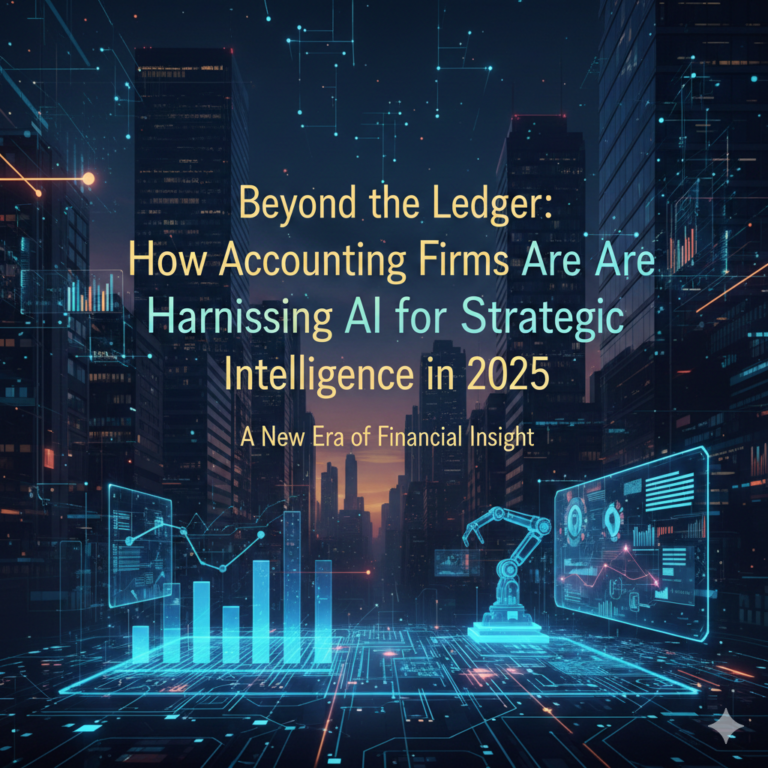Beyond the Spreadsheet: How AI Is Transforming Accounting Firms in 2025
For decades, the humble spreadsheet was the undisputed king of the accounting world. It was the tool that built empires and tracked the global economy. But as we move deeper into 2025, we are witnessing the dethroning of the cell-and-formula model. We are moving “Beyond the Spreadsheet.”
The modern accounting firm is no longer just a place where numbers are crunched; it’s becoming a technology-driven powerhouse. If you ask me, the transition from manual spreadsheets to AI-driven ecosystems is the most significant leap the profession has taken since the invention of double-entry bookkeeping. I’ve seen some old-school partners struggle with this, but the reality is clear: those who stay married to their Excel tabs are effectively fighting a war with wooden shields.

The Death of Manual Reconciliation
One of the most soul-crushing tasks in accounting has always been manual reconciliation—matching thousands of transactions across different bank statements and ledgers. It was tedious, prone to human error, and, quite frankly, a waste of human talent.
AI has changed this forever. Today’s platforms use machine learning to “predict” matches and flag only the few anomalies that actually require a human eye. In my view, this is a massive win for mental health in the workplace. We are finally allowing accountants to be thinkers rather than just data processors. I find it refreshing that a task that once took an entire weekend can now be completed in seconds with higher accuracy.
Real-Time Auditing: No More Yearly Surprises
Historically, auditing was a post-mortem exercise. You looked at the books once a year to find out what went wrong months ago. That’s an outdated and dangerous way to run a business.
In 2025, AI allows for “Continuous Auditing.” The software monitors every transaction as it happens, 24/7.
- Fraud Detection: AI can spot unusual spending patterns instantly.
- Compliance: It ensures that every entry follows the latest tax laws as they change in real-time.
- Risk Management: It alerts the firm to potential financial red flags before they become crises.
Personally, I believe this shift toward real-time oversight is what will finally restore public trust in corporate finances. It’s harder to hide mistakes when the “digital auditor” is always watching.
The Cultural Shift: From “Number Cruncher” to “Data Storyteller”
The most profound change isn’t actually the software; it’s the people. The skills required to thrive in a 2025 accounting firm have shifted. It’s no longer just about being good at math—it’s about being good at data visualization and communication.
From my perspective, the new generation of accountants needs to be “Data Storytellers.” If the AI gives you a complex trend analysis, your job is to explain that trend to a client in a way that helps them grow their business. I’ve noticed that the most successful firms right now are those that hire people with high emotional intelligence (EQ) to complement the high IQ of the AI.

Analyzing the Competition: The Tech Gap
When I look at the competition in this niche, I see a huge gap. Many firms claim to “use AI,” but they are really just using basic automation. The firms that are truly “Beyond the Spreadsheet” are those integrating AI into their core culture—using it for everything from internal resource planning to predicting which clients might leave.
I find it interesting that the firms investing in “Internal AI” are seeing much higher employee retention rates. Why? Because young professionals don’t want to spend 40 hours a week doing work that a machine can do. They want to solve problems and make an impact.
Final Thoughts: Embracing the Digital Upgrade
Moving beyond the spreadsheet isn’t about abandoning the fundamentals of accounting; it’s about upgrading the tools we use to apply those fundamentals.
As an expert in this field, I can tell you that the fear of AI is largely misplaced. The machine isn’t coming for the accountant; it’s coming for the boring parts of the accountant’s job. In my view, 2025 is the year where accounting becomes one of the most dynamic and tech-forward professions in the world. The spreadsheet was a great chapter, but it’s time to turn the page.







